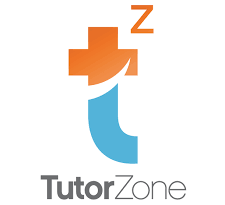The lack of understanding around learning disabilities has caused a significant amount of stigma to arise within education on how to approach students who may have a unique way of learning. A learning disability can be considered an umbrella term that covers a wide range of disorders that affects a student’s “ability to understand or use spoken or written language, do mathematical calculations, coordinate movements, or direct attention” (NIH).
A learning disability is typically not identified within a child until they are in school. About 8 to 10 percent of children under 18 have a learning disability (NIH). However, even then a child may be misdiagnosed or not diagnosed at all. The term “disability” has caused a stigma to be associated with students who are identified with having a learning disability, which can come from parents, educators, and other students. “Labeling” a student causes them to identify with something they may not be comfortable or familiar with, however this label allows the student to be recognized as needing additional support in their learning experience.
Understanding the Stigma
The lack of understanding surrounding learning disabilities has caused harmful assumptions for students, such as viewing a learning disability as “laziness.” Although we have the research to prove that learning disabilities are legitimate disorders that affect the learning experience of students, there are still individuals who choose to avoid providing additional resources and support.
In addition, there are some educators who believe a learning disability is due to a parent’s lack of support in their child’s education, which is not the cause of a learning disability. Rather than blame a parent’s lack of time, new methods should be developed to help create a support system for the student in school and at home.
Because of these negative assumptions, there is a lack of early diagnosis and intervention. Rather than taking the time to assess and test a child, parents and educators may ignore the signs and wait for the child to “grow out of it” (Smart Kids). By not advocating for the child’s needs, the child will continue to struggle and lose motivation in their school work.
How to Support Students
(Washington University Physicians – 11 Things Parents Can Do to Help Their Kids with Learning Disabilities)
Supporting students with learning disabilities begins first with recognizing the student as having an individualized way of learning, rather than an impairment. Celebrating the unique identity and methods students use in school allows everyone to recognize their abilities, while also feeling empowered to overcome their struggles. This is something that can also be done at home with parents. Rather than highlighting their child’s struggles in school, a parent can recognize the strengths they have to discover new ways to support their child.
Praising effort rather than outcome is also important for educators and parents to focus on when working with students. Recognizing a student’s effort allows them to remain motivated to continue improving instead of forcing them to concentrate on not failing. For example, by only recognizing positive results a student will feel insignificant when an outcome is not successful. Parents and educators can also model the fact that it is okay to make mistakes.
School can be overwhelming for all students, making it important for educators and parents to create breaks in school and at home. By giving students time to relax and process, parents and teachers can avoid overwhelming students.This also gives students the opportunity to ask for help from their peers, parents, and teachers.
Helping students discover role models and interests in school will also help students remain motivated . If a student is having difficult learning, they may become disinterested in their school work. To increase a student’s interest in school, parents can enroll their children in after school activities, creating opportunities to make friends and develop good relationships with their teachers.
A learning disability does not mean a student cannot be academically successful. It simply means they require individualized support and resources in their learning experience. Parents and educators can and should continue to have high expectations for all students while also supporting them. Each child has their own set of “hidden strengths” that should be given the opportunity to grow and develop with the support of parents and teachers.
By Viviana Cabrera
Sources
https://www.ninds.nih.gov/health-information/disorders/learning-disabilities
https://www.smartkidswithld.org/getting-help/emotions-behaviors/the-stigmatized-child/
https://nfcenter.wustl.edu/family-resources/emotional-wellness/11-things-parents-can-do-to-help-their-kids-with-learning-disabilities/

